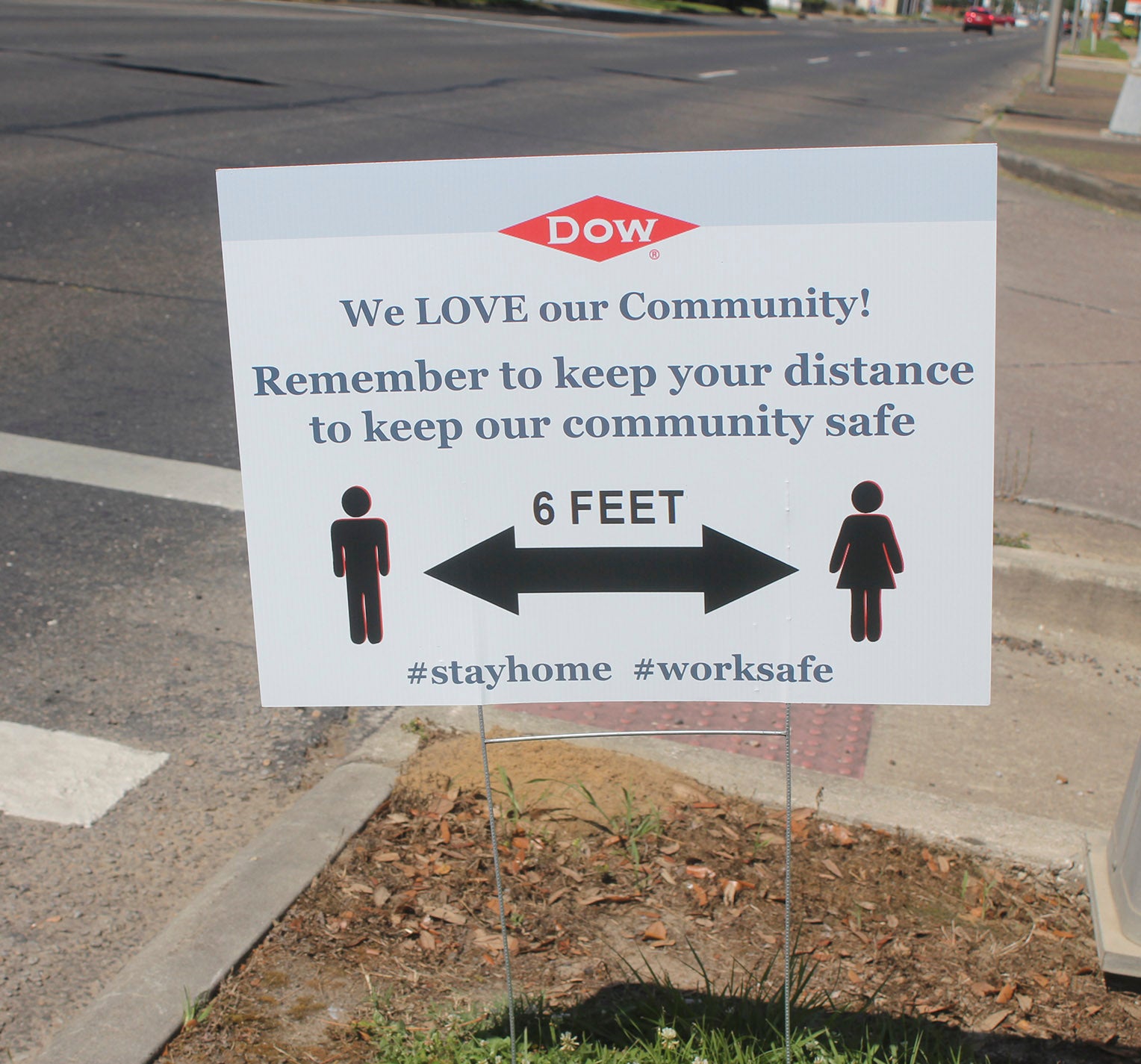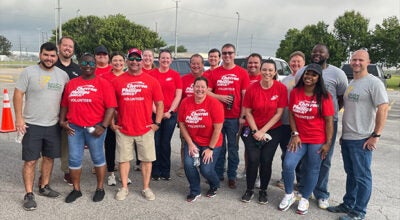Keeping the community safe inspires signs
Published 12:00 am Wednesday, April 22, 2020

- Van Wade/Orange Leader Placards reminding people to stay six feet apart are seen at major intersections throughout Orange.
|
Getting your Trinity Audio player ready...
|
By Dawn Burleigh
A morning run inspired signs spotted around Orange reminding people to stay six feet apart to keep the community safe.
“I was running in the morning and saw people standing too close,” Site Leader for Dow Jean Algate said during a phone interview.
The virus that causes COVID‑19 spreads is largely based on what is known about similar coronaviruses.
The virus is thought to spread mainly from person to person:
- Between people who are in close contact with one another (within about six feet).
- Via respiratory droplets produced when an infected person coughs or sneezes.
These droplets can land in the mouths or noses of people who are nearby or possibly be inhaled into the lungs, according to Texas Department of State Health Services (HHS).
“As much as we want to protect people at the site, I can’t protect them off site,” Algate said. “This is about keeping everyone safe.”
When Orange County issued Stay at Home orders which went into effect on March 27, Dow implemented procedures to keep it’s employees safe by implementing temperature scanning at entry points.
In a post on Facebook, Dow Sabine River Operations:
Dow will continue to focus on the actions of our pandemic response plan including temp scanning at site entry points, social distancing, employees who can work remotely are working remotely, cleaning and disinfecting of facilities, and personal hygiene. We continue to monitor closely presumptive and confirmed cases according to the CDC and report accordingly. Our leaders continue to make personal calls to stay in close contact with their teams should they be at risk.
“When we get knowledge [about the pandemic], we talk about it every day,” Algate said. “The signs are to remind everyone. We share our knowledge so every body is taken care of.”
CDC recommends wearing cloth face coverings in public settings where other social distancing measures are difficult to maintain (e.g., grocery stores and pharmacies), especially in areas of significant community-based transmission.
CDC also advises the use of simple cloth face coverings to slow the spread of the virus and help people who may have the virus and do not know it from transmitting it to others. Cloth face coverings fashioned from household items or made at home from common materials at low cost can be used as an additional, voluntary public health measure.
The cloth face coverings recommended are not surgical masks or N-95 respirators. Those are critical supplies that must continue to be reserved for healthcare workers and other medical first responders, as recommended by current CDC guidance.
“People don’t realize how they can effect someone else by passing on contaminates,” Algate said. “It could affect someone else’s life.”
Those with underlying medical conditions are at higher risk of complications if they contract COVID-19.
These symptoms may appear two-14 days after exposure to the virus, according to the CDC website:
Fever
Cough
Shortness of breath or difficulty breathing
Chills
Repeated shaking with chills
Muscle pain
Headache
Sore throat
New loss of taste or smell
If you would like to be tested for COVID-19, call 409-550-2536 for an appointment. After testing, you will be required to self-isolate until your test results have been returned. The Call Center is open from 8 a.m. until 8 p.m., Monday through Friday. If you call after hours, you will be directed to leave a message with your name and phone number. Someone will call you the next morning to schedule an appointment for testing. If you feel like it is an emergency, hang up and call 911 immediately. Testing is free for everyone.





